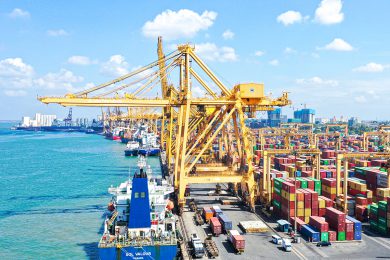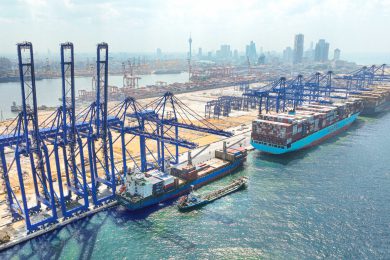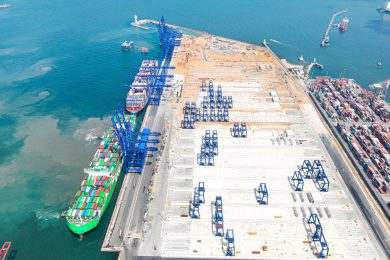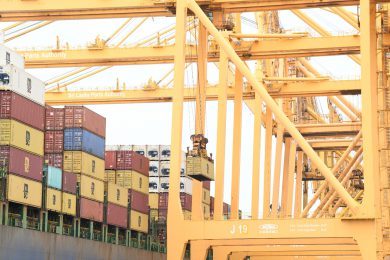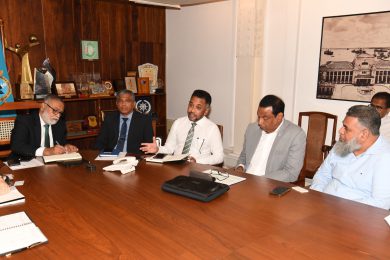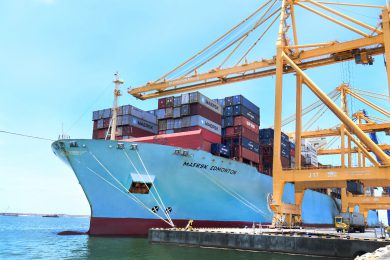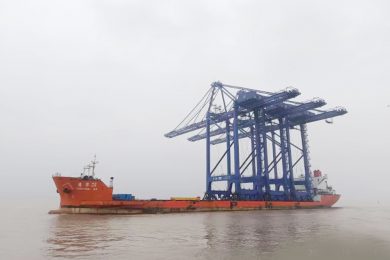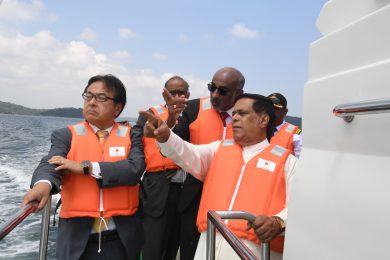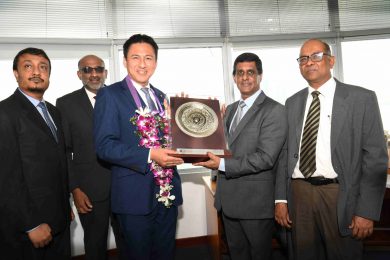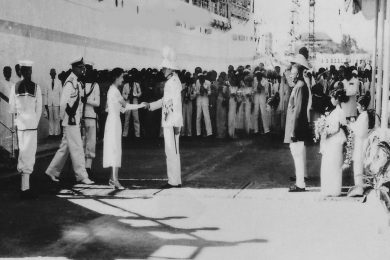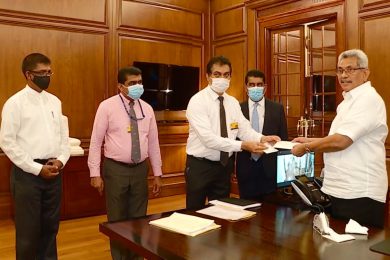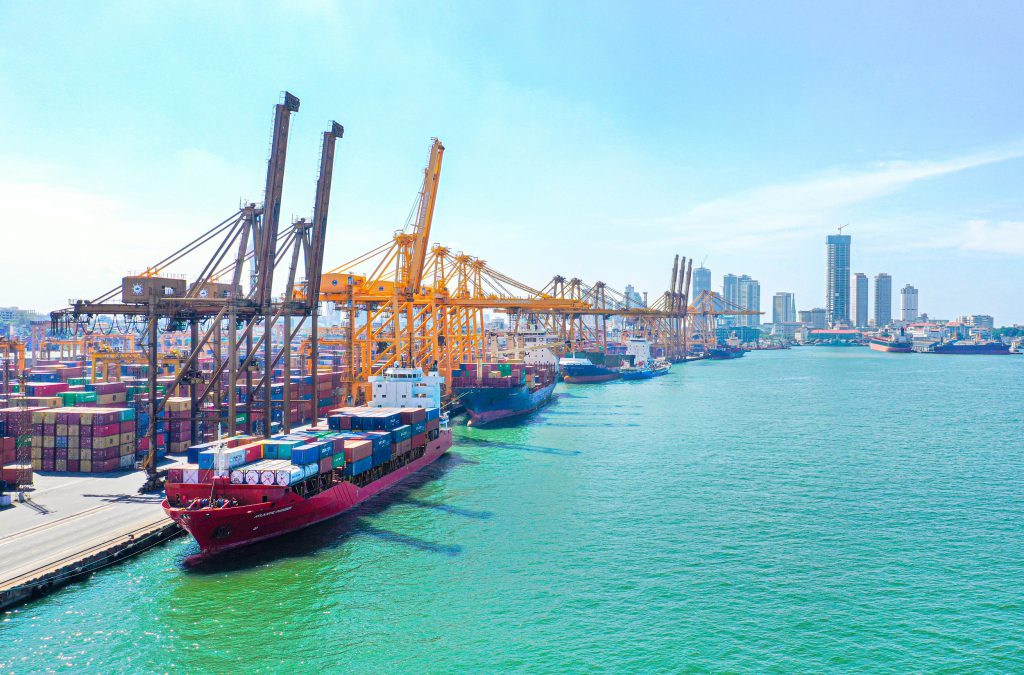Maritime Industry in Sri Lanka: Our Heritage – Our Opportunity
by Nilantha Ilangamuwa
This year we celebrate World Maritime Day under an apt theme, ‘new technologies for greener shipping,’ at a time when civilization is in front of a paradigm shift. Credible and genuine collective support is the only way to overcome prevailing challenges. As an island nation strategically located at a centre of the world, the maritime industry is an inseparable part of our nation. Our maritime heritage is larger than we think. In order for the maritime industry to move forward, we must have a constructive reading of its current state, where we must have a balanced analysis of the progress or decline other countries have achieved or faced in this industry. The inability to learn not only from our failures but from others’ mistakes or secrets behind their successes will refine our approach and minimize risks.
It is incontrovertible that the global maritime sector is a major enabler of international trade today. In fact, the progress we have made in international trade today has been achieved thanks to the maritime industry. While other modes of transportation have reached practical limits of scale, container ships continue to respond to global economic forces, more than doubling in size in a generation. Technology-driven peripherals are changing the landscape of the industry. The recent global economic recession has affected the positive reforms that should take place in the industry, but the industry has proven its vitality and resilience in overcoming challenges. The looming global financial crisis and the consequences of climate change have had a long-term and adverse impact on the maritime sector, with major setbacks in some traditional operational methods, but the importance of the sea to maintain the integrity of the global supply chain remains unchanged.
As we all know, Sri Lanka is one of the leading maritime countries in the world. Its status is due to a remarkable historical foundation, our geographical position and the heritage that nature has gifted us to build a vibrant economy. As a key facilitator and operator of global trade, the shipping industry has played a critical role in Sri Lanka’s development over the centuries. Archeological evidence has proven time and time again that hundreds of years before the arrival of the European invaders, we traded with most of the world and kept the national economy stable.
The most attractive thing is that our commercial ports are trying to evolve in line with the ever-changing world economic patterns. There is a strong focus on how our ports can be expanded not only for the import and export of goods but also for other business services in the maritime sector and contribute to our national economy. The emergence of new container terminals at Colombo Port, the development of Ro-Ro business at Hambantota Port, the construction of a full-fledged tourist port at Galle, the construction of Kankesanthurai Port to improve neighbourhood connectivity and the resumption of bulk exports at Trincomalee Port are some examples. The future of Sri Lanka is determined by the ability to properly utilize our seas and their resources, not only by the government but also by all the stakeholders involved in the maritime industry. The need to do so is recognized in the recommended corporate plan to develop a national strategy for the maritime industry that can provide a strong signal to international customers and competitors.
As Sri Lanka looks to strengthen its relationship with the world, it is time to formulate and implement our strategic vision for the future of the maritime industry. It is fascinating to see how Sri Lanka is working with countries around the world to develop our current trade and investment relationships and explore the best ways to ensure we are a stable regional contributor to free trade with sustainably growing domestic economies. Although we have used the non-aligned foreign policy as a catalyst to express our identity to the world for a long time, some of its features need to be re-engineered to suit the present. Our aspiration is to strengthen our historical and optimistic relationship with our neighbours, which includes both economic and security cooperation, to adequately serve the needs of all citizens and the national interests. The national strategic maritime vision is a strong foundation to preserve our maritime heritage and achieve our future. The expertise we have honed over generations across the industry will guide us in certain areas such as technological and environmental innovation and high-quality marine business services.
Maximizing our strength in maritime professional services, maintaining and enhancing our quality services and developing our greener shipping ambitions are significant here. Expanding maritime education in our universities in collaboration with other educational institutions around the world, encouraging maritime innovation by maximizing the benefits of new maritime technologies and facilitating small and medium enterprises (SMEs) and maritime companies etc. will be helpful in achieving our future goals. A new emerging market where we have the potential to grow our maritime workforce, transform their skills and become a regional leader in providing maritime education and training.
The need for maritime infrastructure that makes Sri Lanka a globally attractive destination for all maritime businesses and a place of easy doing business is a demanding prerequisite. To make Sri Lanka the most attractive place to do maritime business, it is time to create leading maritime clusters, promote partnerships between the maritime sector and academia, support leading global maritime programs across all segments of the industry and advocate responsible public-private partnerships based on transparency and accountability with a sense of national interests.
Changes in technology are changing the way the maritime sector operates, improving performance and creating opportunities for maritime businesses to make better decisions. Big data analytics, digitization and more advanced communications are already leading us to better connectivity, efficiency and cost savings. Also, disruptions such as cyber-attacks and potential hazards to the industry pose risks to business continuity. These challenges drive Sri Lanka’s ambition to harness advances and changes in marine technology to create a cleaner, safer and more efficient place to work while creating high-skilled employment opportunities at sea and onshore.
We are a blessed nation, but blessings alone will not help us find a path to rejuvenation until we capitalize on them for the common good. What is important is the genuine ability to adapt and implement the strategic plan for the future, combining our deep-rooted maritime heritage with new market realities. It is a new culture. That is why the need for uncompromising national policies based on our national interests to support and develop the maritime industry with strength and determination has been repeatedly emphasized. It is time to collectively pursue challenges as opportunities to move our nation toward prosperity and a stable future for all. To achieve this noble national mission, the country’s ports are the heart and the maritime industry is the backbone.
[The writer is a senior manager in Sri Lanka Ports Authority. Views expressed are personal]
Featured photo: Container ships are docked at Colombo Port for operations [Photo: CPRD/SLPA]



